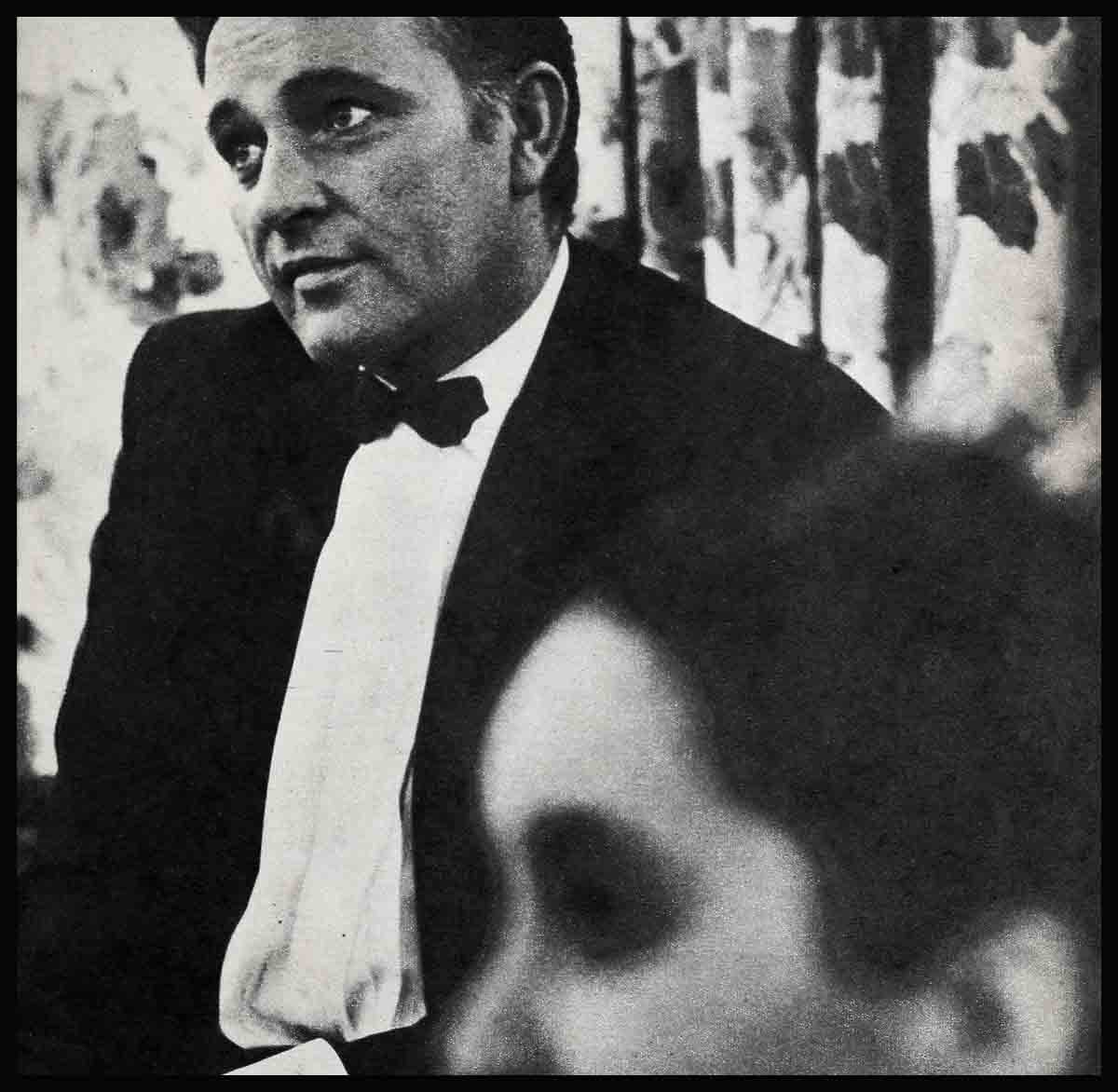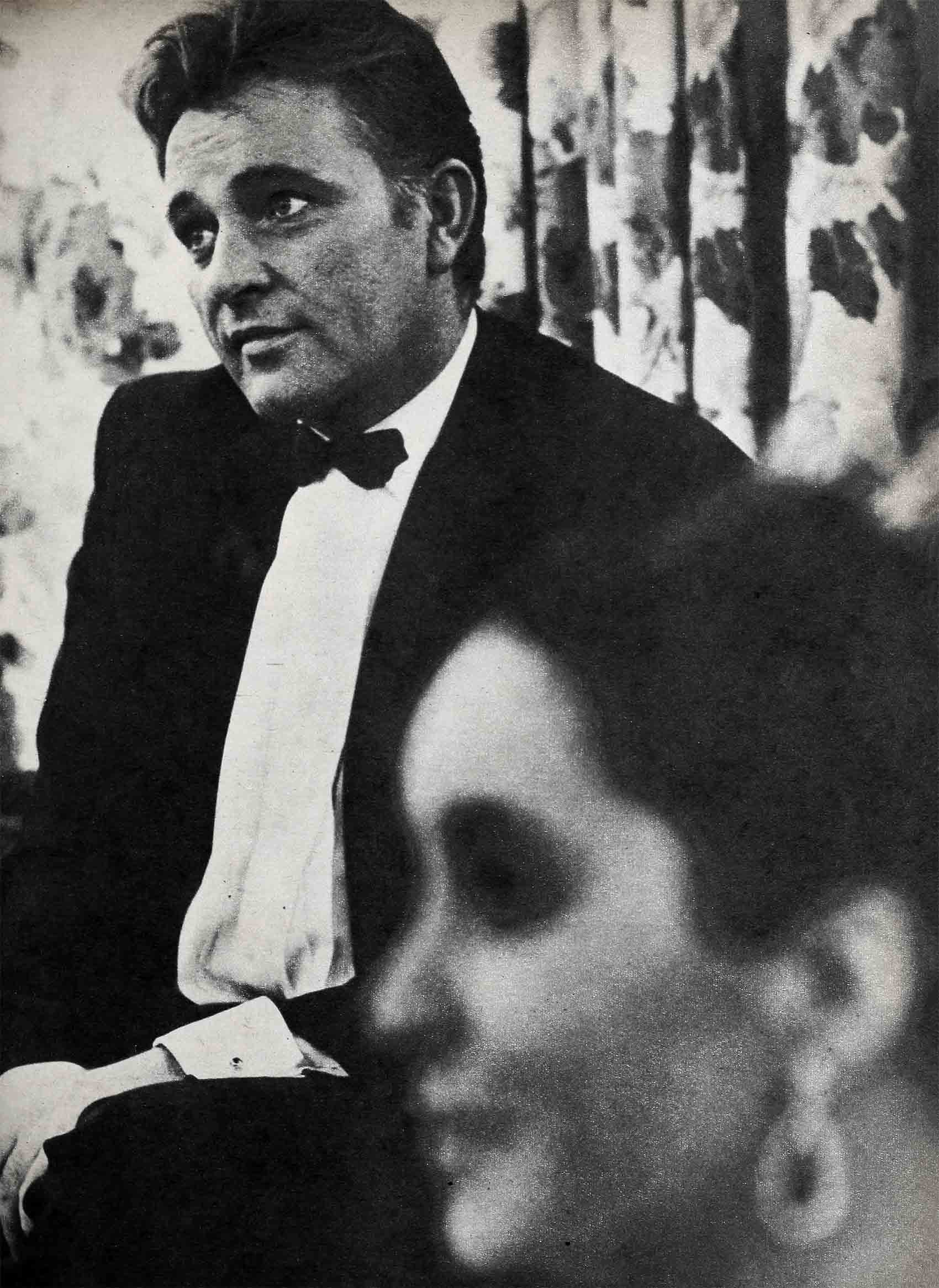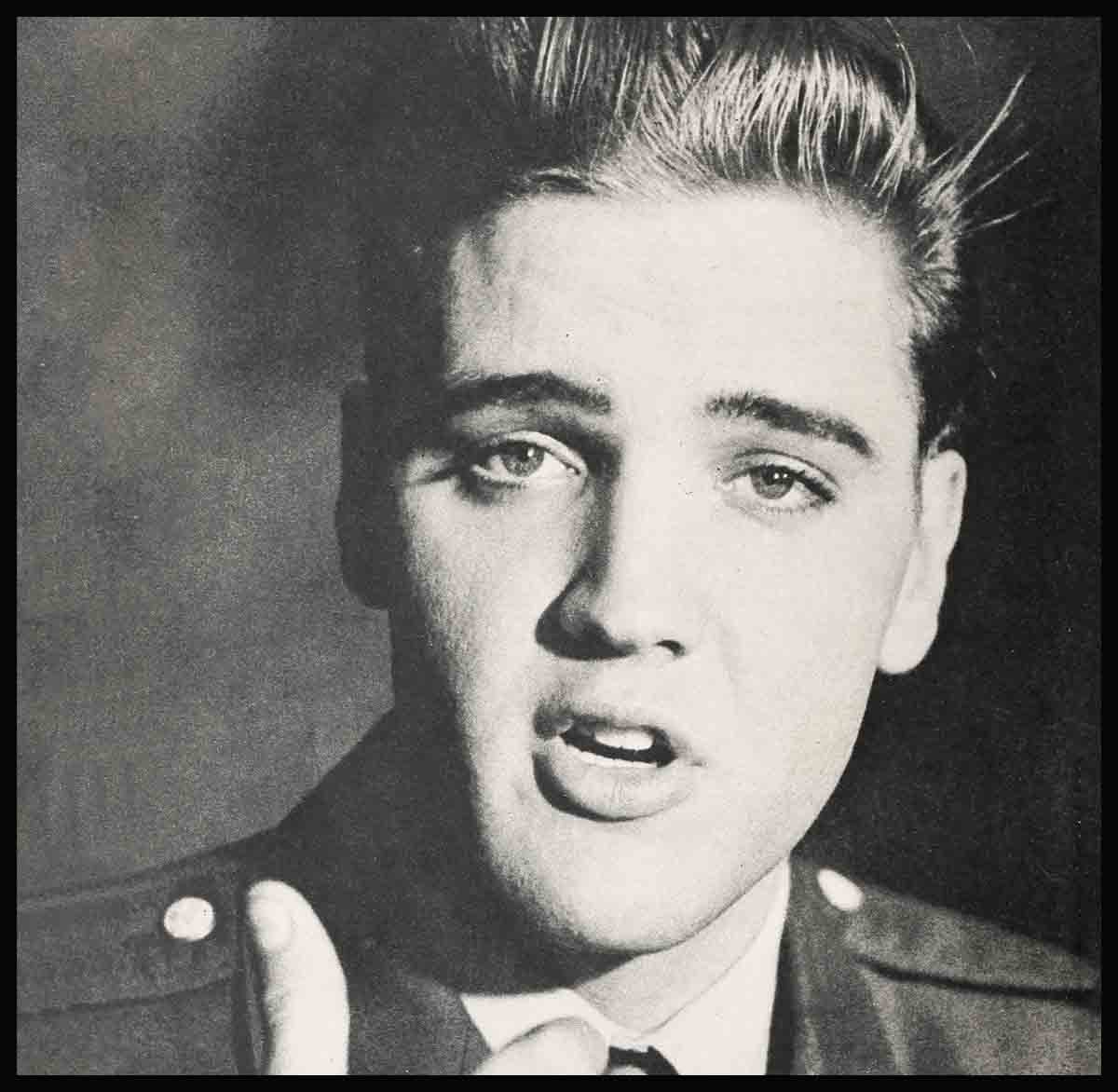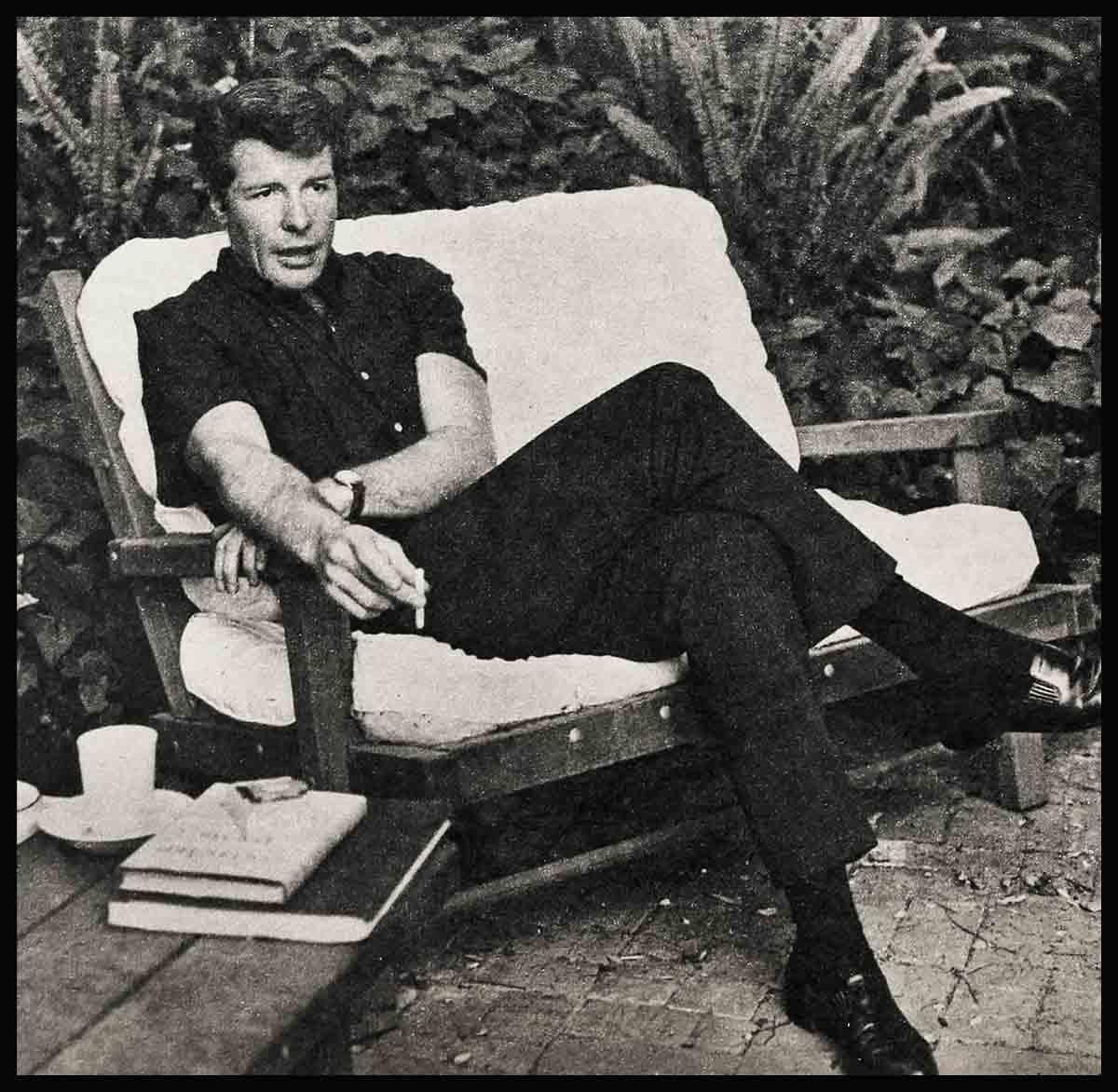
Liz & Burton’s Wedding Night, What Eddie Could Tell Burton!
There’s a line in a Noel Coward play which Richard Burton might very well utter to Liz Taylor on their night of nights, their Wedding Night: “There isn’t a particle of you, my dearest, that I don’t adore—and don’t know . . .” First: it’s a romantic line, overflowing with whispered passion. Second: someone else wrote it—as publicists Nat Weiss and Jack Brodsky pointed out in their recent “Cleopatra Papers”: “Mankiewicz described them—Liz and Burton—as ‘two actors who don’t know how to get offstage’ because there’s been no scriptwriter around to show them how. Mank used this to illustrate his thesis that these people only know about life from what they read in their scripts.”
And third: Burton, deep down, will undoubtedly believe the full meaning of the line to be true!
He will, however—and alas—be in more-than-slight error. Because, despite their nearly year-and-a-half-long love affair, there is still a whale of a lot Richard Burton doesn’t know about his Liz.
And it’s a pity in a way that Eddie Fisher—who was married to Liz for three years and does know all about her—won’t be around to fill him in on those few missing “particles.”
Quite a little script that scene might make.
For instance, it could easily read something like this—
EDDIE: Good evening, Richard.
BURTON: Good evening, luv. And don’t look at me that way. I call absolutely everyone “luv.”
EDDIE: I just dropped by to congratulate you.
BURTON: That’s jolly sporting.
EDDIE: —And to see if there was anything I could do for you and Boot. That is what you call Elizabeth, isn’t it?
BURTON: Yes. Boot. For “beautiful.” We call each other that, as a matter of fact.
EDDIE: You will be tender with her tonight—?
BURTON: As if I were her first husband. and not her fourth.
EDDIE (a slight correction): Fifth! I was fourth.
BURTON: Hmmmmm. Yes. Right.
EDDIE: And you’ll keep paying her all the attention she’s been used to getting from you? And more now?
BURTON (aghast): M-O-R-E???
EDDIE: Yes. You see, what you’ve been through has been only the beginning—
BURTON: But I’ve done everything for her!
EDDIE: Not enough.
BURTON: I’ve bought her things. At least, a thing. I bought her a magnificent brooch. Spent tens of thousands of pounds on the bloody pin—
EDDIE: But I read somewhere that you gulped when you gave it to her. And didn’t smile. . . . You’ve got to spend money cheerfully with Elizabeth.
BURTON (chauvinistically): I’m Welsh.
EDDIE: I don’t care if you’re from East Azerbijain. Just keep giving—and smiling.
BURTON: And I suppose I should have smiled last month, in Paris, at that bloody fashion house, sitting for hour on hour on that bloody brocade chair, while she tried on gown after bloody gown?—with those other women, silly frumps, staring at me? (Blowing up now.) I’ve done—more than enough!
EDDIE: Ah Richard, Richard—relax. You’re turning color.
BURTON (pleased): That’s what Tammy Grimes once said about me. “Turn him and you see fifty patterns. Every time you meet him, you see a million different colors.” Observant girl, Tammy!
EDDIE: But you were turning only one color—beet, angry red. . . . I’m only trying to give you a little friendly advice, Richard.
BURTON: I’m sorry. You were saying—?

EDDIE: Don’t expect Elizabeth to be another Sybil, that’s all.
BURTON (curious): How do you mean that?
EDDIE: Sybil. I’ve heard, is a very good cook—who, if you came in at two in the morning, were hungry, asked for something. would run into the kitchen and—without question—whip up something for vou. Right?
BURTON: Right.
EDDIE: Well—first of all. in most houses where Elizabeth has lived she couldn’t tell you where the kitchen was if the next seven meals depended on it. Kitchen! The word alone is to make one laugh. Ha! (He laughs. Then—) And, anyway, at two in the morning she’s got other things on her mind. And you’d better be there at two in the morning!
BURTON (a pained smile): But—suppose I’ve gone out with the. ahem, boys of a night—do you know what I mean?
EDDIE: I know exactly what you mean—and forget it.
BURTON (the smile goes): Give up all of my extra-curricular amouring? And become one of those . . . those model husbands???
EDDIE: Even your rich Pontrhydyfen baritone. Richard, doesn’t do justice to that cliche. . . . Let’s put it this way—simply. You’ve got to, from now on, become the most incredibly perfect of human beings. . . . Now I don’t mean, of course, that you should make my mistakes—
BURTON: How’s that, luv?
EDDIE: Well, maybe it would have been better if I hadn’t been so permissive with her. Elizabeth considers herself a queen—yes; but maybe I overdid the page-boy bit a little too much. Always kowtowing. Always agreeing. There are times, I guess, when I should have changed pace—just for the sake of pacing. Elizabeth, you see, is very easily bored. And if you sit around saying “I love you, I worship you, you’re divine. Your Cinematic Majesty!”—then, slowly, you notice that her mouth is making oval figurines. Like she’s yawning.
BURTON (with some pride): I don’t think you know me on this score, Edwin, old chap. I rarely tell any woman that l love her. And I’m not above a little scuffle with ’em, either, when the occasion arises.
EDDIE: Yes. I read about those broken lamps at the Dorchester. . . . But what I mean is that Elizabeth is spoiled, is fragile, is somewhat adolescent, is domineering, is emotional, is volatile, does need a certain amount of pampering. But, too, you have to surprise her sometimes, to keep her from getting bored by the pampering. If she expects all sunshine, bring on the rain. If she feels like a cruise on the Caronia, tell her it’s rowboats or nothing. Steak? Burgers! Burgers? Pheasant! . . . Just keep surprising her, confounding her—and stay on top for as long as you can.
BURTON (impressed): Very good. Very good. And tell me, old chap—
EDDIE (interrupting): I hate to interrupt you. Richard. But I happen to be three years younger than you.
BURTON: Of course. So sorry. . . . But tell me—you see, there are a few things that have been bugging me these last few weeks—things about Boot as a bride which give me some pause—
EDDIE: For instance?
BURTON: Well—and I know that this is rather embarrassing to ask of you, history being history. Rome being Rome, all that—but how might I keep Boot from becoming interested in any future leading man whom she will play—that is. act!—opposite?
EDDIE: Simple. You can either boot Boot in that section of her anatomy which all the world now gets to gape at. Momentarily, in “Cleopatra” . . . or, better, you be her leading man. In every picture she makes from now on. . . . Simple?
BURTON: Yes.
EDDIE: Next question.
BURTON: What, tell me. do I do about these friends of hers who are always dropping by, and sometimes—staying? I mean, she does have the most enormous amount of acquaintances—people from Hollywood and Paris and New York and wherever—actors, lawyers, accountants, advisers. How does one get rid of them from time to time?
EDDIE: One doesn’t. Elizabeth is salon-happy. Empty her living room and she feels like she’s just been exiled to the Gobi Desert. She likes to talk, she likes to stay up late, she likes to hear the latest gossip, the latest jokes—and most of all she likes to keep up with events in the Business. Show business! Someone once said of Elizabeth that if she ever couldn’t get a job as an actress she could always become an editor on Variety. Show business is in her blood; been there since she was twelve. I wouldn’t advise any transfusions.
BURTON: You’re being more than kind to me.
EDDIE: Don’t mention it.
BURTON: Tell me—another little problem—but how goes it with her and the clan?
EDDIE: Sinatra? Lawford? Those people? Elizabeth likes them, but—
BURTON: No. I mean my clan. The in-laws. I have tons of brothers and sisters in Wales, don’t you know, not to mention the nieces and cousins and such. They’re all in an absolute tizzy to meet Liz. I must bring her to them someday. But I was just wondering, from your experience, how this sort of thing goes.
EDDIE: Fine. No problem. Elizabeth met my mom. my family. It was all nice and cozy. Lots of hugging, lots of food, lots of anecdotes about me when I was a kid—she loves to hear that kind of thing. The only thing is—don’t expect her to go through this hometown scene very often.
BURTON: Once a year, say?
EDDIE: In some cases, it’s been once a marriage. But I think once a year would be just about right . . . yes. . . .
BURTON: Speaking of kids, what does one do about hers?
EDDIE: That’s the easier part. They’re marvelous children—Michael, Christopher, Liza—and you can’t help but be nuts about them. Like all children, of course, they need discipline from time to time. But don’t you try to do that. Elizabeth’s a passionate mother. When she’s with those kids, she’s like a tigress with cubs. Hurt them in any way—however unintentionally—and get out the blankets and prepare to sleep on the couch. Because the atmosphere—it gets very cold suddenly. And the doors—they get very locked. You wouldn’t like that.
BURTON: What about one’s attitude to- wards one’s own children?
EDDIE: I’d rather not go into that.
BURTON: And toward the child Liz will want to have with me?
EDDIE: You know that, don’t you? (Seriously.) Well, all I can say is—talk her out of it. It’s pretty obvious that it’s mighty dangerous for her to ever give birth again—Caesarean or otherwise. Enough doctors have told Elizabeth this enough times. But, in the back of her hyper-romantic mind lies a seed of thought which is a true and valid thought: that no marriage is ever truly consummated until the partners of that marriage share a child. She’ll weep about this in front of you. She’ll be gloomy for days—weeks, sometimes—just thinking about this. “I want a baby!” she’ll scream, and there’ll be so much passion in her voice, so much heartbreak, that you’ll look around and wonder why the director doesn’t yell “cut!” And then you’ll realize that this is no act. That you’re alone with her. That she’s being herself, desperately herself—and means it. But you’ve got to say no. You’ve got to warn her, repeatedly, of the consequences—or else. . . . Or else. . . . (A pause.) Well, it’s getting late. I’d better be going.
BURTON: Thank you. Eddie. I appreciate your dropping by.
EDDIE: You’re welcome. Goodbye. Good luck.
BURTON: Well—?
EDDIE: Well, what?
BURTON: Aren’t you going to add the inevitable phrase to “good luck”? And tell me how I’ll “need” it?
EDDIE: No. There’s nothing for me to be bitter about. We had some nice times. Elizabeth and I. Despite the jesting . . . I mean it. Good luck. Period.
The two shake hands.
Fade out.
THE END! . . .
—BY DOUG BREWER
Burton appears with Liz currently in 20th’s “Cleopatra.” and M-G-M’s “The V.I.P.s”
It is a quote. PHOTOPLAY MAGAZINE OCTOBER 1963





zoritoler imol
30 Temmuz 2023Can I just say what a relief to find someone who actually knows what theyre talking about on the internet. You definitely know how to bring an issue to light and make it important. More people need to read this and understand this side of the story. I cant believe youre not more popular because you definitely have the gift.